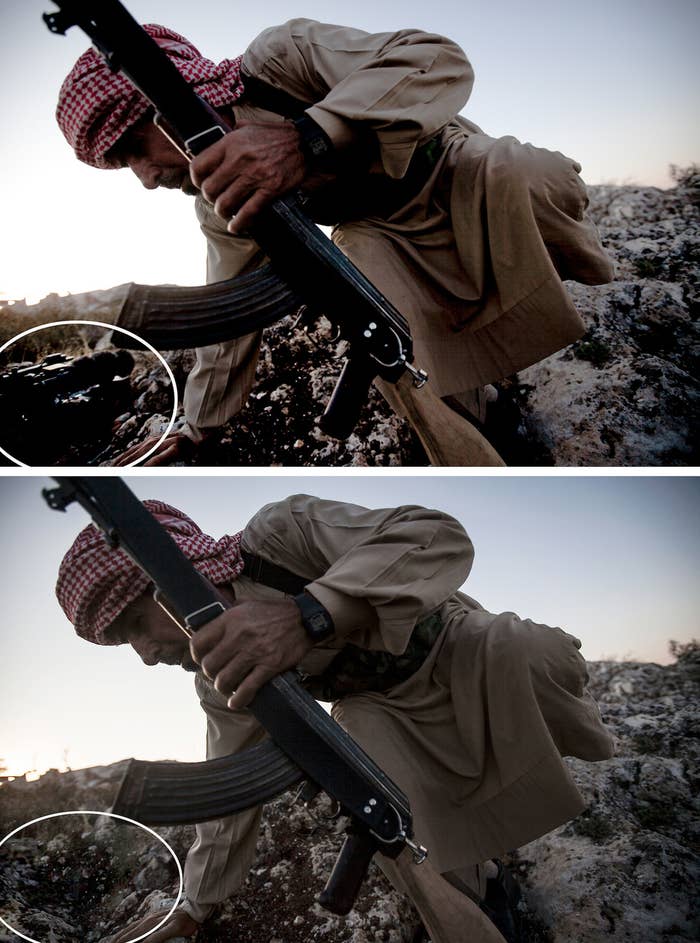
The Associated Press said Wednesday one of its photographers admitted to altering a photo taken last year during the war in Syria and pulled all of his images from its wires.
According to the news agency, Narciso Contreras recently told editors he had manipulated a photo of a Syrian rebel by "cloning" other pieces of the background and pasting them over a colleague's camera in the frame before sending it to an AP photo desk.
While the AP does allow photographers to use software to lighten or darken photos, only "minor adjustments in Photoshop are acceptable," its ethics policy states.
The freelance photographer, who shared a Pulitzer Prize for his images of the war, said the photo was the only one he had manipulated.
"I took the wrong decision when I removed the camera ... I feel ashamed about that," Contreras said. "You can go through my archives and you can find that this is a single case that happened probably at one very stressed moment, at one very difficult situation, but yeah, it happened to me, so I have to assume the consequences."
The AP said it severed ties with the photographer after learning of the manipulation and reexamined 494 other photos shot by Contreras but did not find any other alterations.
The news agency previously pulled a series of photos in 2011 after a photographer was caught altering an image to remove his shadow.
"AP's reputation is paramount and we react decisively and vigorously when it is tarnished by actions in violation of our ethics code," said Vice President and Director of Photography Santiago Lyon. "Deliberately removing elements from our photographs is completely unacceptable and we have severed all relations with the freelance photographer in question. He will not work for the AP again in any capacity."
